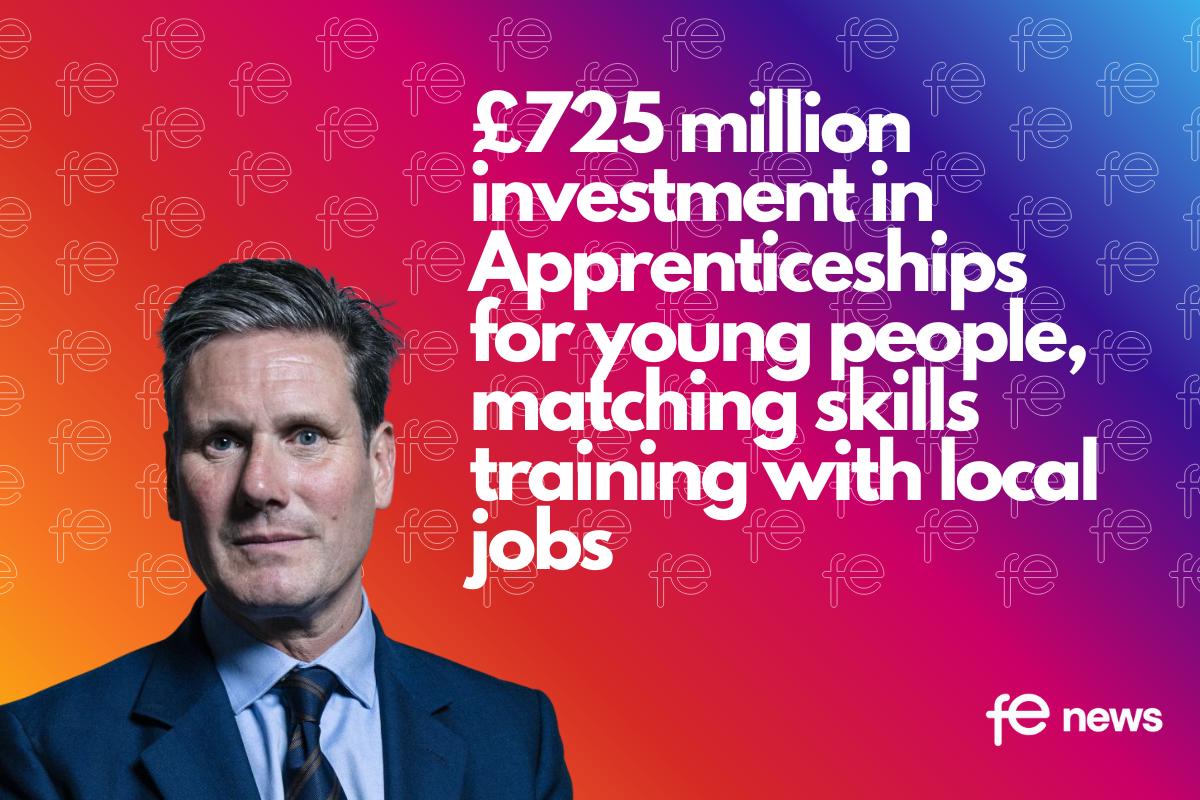Lifetime Skills Guarantee – Major reform required to create a fairer, balanced and more sustainable post-16 education and skills system

The Independent Commission on the College of the Future (@CollegeComm) has responded to Prime Minister @BorisJohnson’s speech on skills setting out his plans to transform the training and skills system and prepare workers for a post-Covid economy.
Responding to the plans, Professor Ewart Keep, Commissioner for the Independent Commission on the College of the Future said:
“For too long colleges have been underutilised in meeting the challenges of our economy and society. It is welcome that today the Prime Minister is recognising them as institutions at the heart of recovery in communities across England.
“Today’s announcement for skills in England signals an important refocus on lifetime learning and accessible education. This will be key to recovery, boosting productivity and transforming people’s life chances at a time of great uncertainty. The new entitlement to a fully-funded Level 3 qualification and more flexibility in funding for FE and HE could help to unlock the skills of the nation. This commitment has to be reinforced by good quality advice and flexible financial support, something the Commission has been giving a great deal of thought to.
“The focus on skills is needed for economic recovery now, but it can’t just be about economic recovery from COVID. This has to be about building the foundation of a system that supports people of all ages in the future too as the world and jobs continue to transform. This requires major reform to create a fairer, balanced and more sustainable post-16 education and skills system.
“This has to be a priority for Governments across the four nations, and we look forward to publishing our recommendations for the College of the Future later this Autumn.”
#Post16RevolutionaryReforms – Rediscovering the ‘Employment and Part-Time Higher Technical Education’ Model
Secretaries of State always like to claim that their reform is the ‘big one’ – often using the 1944 Education Act as their historical benchmark. For once, this might be true.
The forthcoming white paper does represent make or break time for vocational education in England.
Under-funded, with falling post-19 student numbers, squeezed by the royal route of A levels, largely crowded out of higher level and higher status qualifications by an obsession with university-based bachelor’s degrees, facing declining employer training effort, and desperately trying to make the T level pilots work, we are at a critical juncture.
Moreover, with the looming recession and mass unemployment engendered by the pandemic, the backdrop is even more uncertainty.
Getting policy right really matters.
16-19 Vocational Education
T levels have been officially declared a gold standard ‘success’ before a single student started on one, never mind graduated into the labour market. Currently, the future of 16-19 vocational provision is heavily dependent on this projected success becoming a reality.
The pilots will be taking place against the backdrop of recession and high youth unemployment. A slow, measured and well-supported rollout will be critical. So too will be designing and delivering a meaningful and effective ‘transition year’ curriculum as without this, the ‘feedstock’ for a large and successful Level 3 vocational route simply will not exist.
It remains an open question how many young people and employers in some sectors really want Level 3 qualifications, and policy needs to decide what the size, role and shape of supposedly ‘residual’ Level 2 vocational provision should be in a T and A level dominated upper secondary phase.
Augar and a New Sub-Degree Route
As the Augar Review demonstrated, we have a yawning gap in provision between Levels 3 and 6 which in other developed countries is filled by ‘short cycle’ tertiary education. We need to rediscover a model of technician and associate professional training based around part-time study while in employment, using block or day release, and move back to a situation where HNDs and HNCs are seen as an end in their own right, not just as a staging post to a bachelor’s degree.
If this means more students follow Level 4-5 sub-degrees and fewer follow 3-year Level 6 bachelor degrees, so be it. Crucially, this strand of activity needs to be seen as college not university territory.
This would provide prestige for vocational provision in FE that will help shift ambitions and perceptions. It would allow FE to develop higher status routes and in-depth expertise in subject pedagogy – networked provision.
The days of the vast bulk of FE provision being pitched at Levels 1 to 3 ought to be drawing to a close.
Apprenticeships
Apprenticeships are by far the hardest area of vocational policy to know what to do with. The levy – a short-term ‘wheeze’ to fill a gap in government funding opened up by austerity – has had complex consequences that were wholly unintended, but which have proved utterly disastrous.
The current absurdities of managerial employees of 10 years standing being put through an MBA ‘apprenticeship’ may make sense to their providers’ accountants, but are catastrophic for almost everyone else. Deadweight and re-badging are high, additionality low, and apprenticeship as a coherent brand and route for young people to enter the labour market in serious danger of being submerged.
Apprenticeships are turning into an empty box – any qualification-related piece of training that an employer offers their employees.
Given the backdrop of recession, pressures on employer investment in skills, and mass unemployment, perhaps the best plan would be to commit to a thorough, long-term and potentially very painful review of what apprenticeships are, who they are for, and how best they should be funded and developed.
In undertaking this, there is no point looking enviously at Germany or Switzerland, as their apprenticeship systems are underpinned by cultural and institutional arrangements we cannot replicate.
Perhaps Scotland, which has successfully grown provision, largely for young people and mainly at Level 3, might have more to tell us about a way forward?
Collective Organisation of Employers
Very few countries with successful vocational systems have achieved this without a major input to policy formation and delivery from employers.
We currently lack any effective mechanisms for securing this input on a collective basis, whether at national, local or sectoral level.
Rectifying this institutional vacuum should now be a very urgent priority. Without this, T levels, apprenticeship policy and sub-degree policies are liable to fail.
Three Reforms for the White Paper
- First, the white paper should outline a long-term strategy to revive college-based Level 4-5 sub-degrees even at the expense of Level 6 bachelor’s degrees.
- Second, the white paper must set out the purpose of apprenticeships and their importance as an option for young people in light of employer digital accounts in England funded through the UK-wide apprenticeship levy.
- And third, government as a whole must re-think from scratch how best to involve employers and other stakeholders in the policy design and delivery of post-16 vocational education and training in England.
Ewart Keep, University of Oxford
‘Revolutionary Forces’In the immediate aftermath of the Covid-19 pandemic, it is easy to forget that there were wider revolutionary forces at work on the UK’s economy before the virus outbreak. Issues such as Brexit, the rise of automation in the workplace, longer working lives, and poor UK productivity have brought into even sharper focus, education and skills. NCFE and Campaign for Learning (CfL), published the first in the series of ‘Revolutionary Forces’ discussion papers on 6 July 2020. In this Revolutionary Forces series different perspectives and proposed reforms for the post-16 education and training system have been brought together in one pamphlet, from expert stakeholders, think-tanks and educational professionals. Building on the recommendations outlined in the first paper for flexible reforms that support economic and social renewal, this new paper, “Reforms for a Revolutionary Post-16 White Paper“, takes a deeper look at which areas need to be addressed. The authors are:
|











Responses